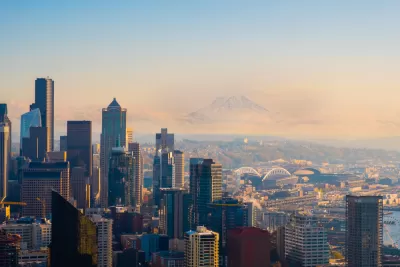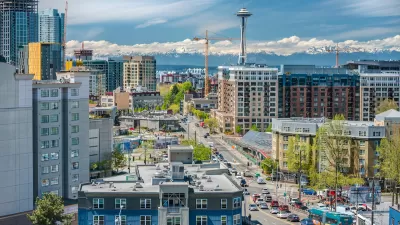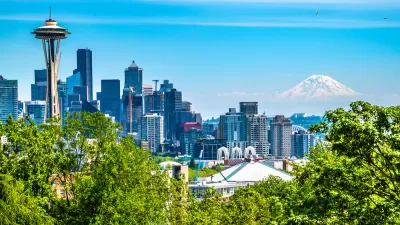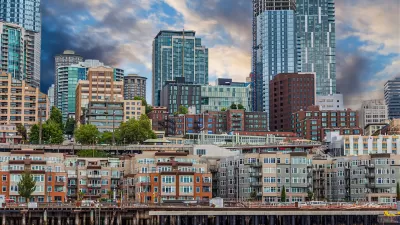The city aims to build 20,000 units of affordable housing by 2025, but as housing costs continue to increase, more Seattleites are being squeezed out of their homes.

Despite almost doubling the city’s spending on affordable housing in the last few years, Seattle still faces a housing shortage, writes Josh Cohen in Crosscut.
“In 2017, the Office of Housing awarded $93.4 million to affordable housing developers to build 944 units of new housing. In 2018, the number dipped to $75.19 million in awards, but that was enough for 1,197 units of affordable housing. Last year, the Office of Housing’s affordable housing investment grew to $153 million, enough to build or acquire 1,910 units (several affordable housing developers were able to buy existing market-rate apartment buildings during the pandemic and operate them as subsidized housing).”
However, Cohen points out, “Years of insufficient housing construction, combined with Seattle’s seemingly endless cost-of-living increases, mean those new apartments still won’t be enough to meet the needs of Seattleites being squeezed out of the city or pushed into homelessness.” With costs of everything from land to construction supplies rising, making building affordable housing even more complicated.
According to Seattle Office of Housing interim director Maiko Winkler-Chin, funding the amount of housing necessary will likely require renewing and increasing the Seattle Housing Levy, a $290 voter-approved property tax set to expire in 2023.
FULL STORY: Seattle nearly doubled affordable housing funds. Is it enough?

Alabama: Trump Terminates Settlements for Black Communities Harmed By Raw Sewage
Trump deemed the landmark civil rights agreement “illegal DEI and environmental justice policy.”

Planetizen Federal Action Tracker
A weekly monitor of how Trump’s orders and actions are impacting planners and planning in America.

The 120 Year Old Tiny Home Villages That Sheltered San Francisco’s Earthquake Refugees
More than a century ago, San Francisco mobilized to house thousands of residents displaced by the 1906 earthquake. Could their strategy offer a model for the present?

LA’s Tree Emergency Goes Beyond Vandalism
After a vandal destroyed dozens of downtown LA trees, Mayor Karen Bass vowed to replace them. Days later, she slashed the city’s tree budget.

Sacramento Leads Nation With Bus-Mounted Bike Lane Enforcement Cameras
The city is the first to use its bus-mounted traffic enforcement system to cite drivers who park or drive in bike lanes.

Seattle Voters Approve Social Housing Referendum
Voters approved a corporate tax to fund the city’s housing authority despite an opposition campaign funded by Amazon and Microsoft.
Urban Design for Planners 1: Software Tools
This six-course series explores essential urban design concepts using open source software and equips planners with the tools they need to participate fully in the urban design process.
Planning for Universal Design
Learn the tools for implementing Universal Design in planning regulations.
Ada County Highway District
Clanton & Associates, Inc.
Jessamine County Fiscal Court
Institute for Housing and Urban Development Studies (IHS)
City of Grandview
Harvard GSD Executive Education
Toledo-Lucas County Plan Commissions
Salt Lake City
NYU Wagner Graduate School of Public Service





























